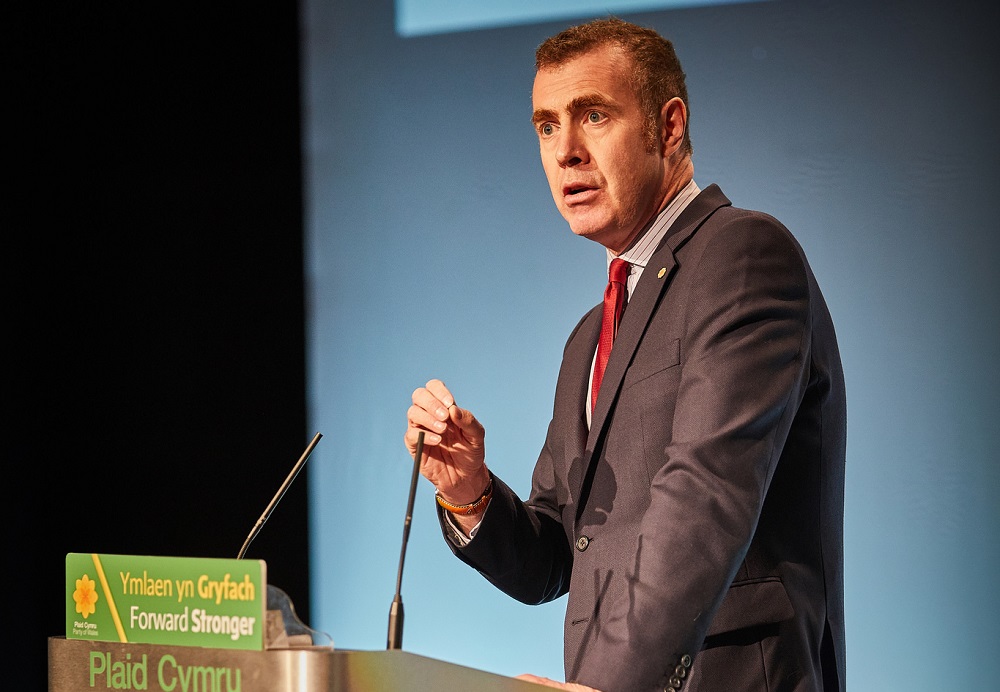If Adam Price wants to win independence he must focus on Wales’ present not its past

Theo Davies-Lewis
When Adam Price compared the experience of Wales in the industrial era to that of a colonial nation in October, he rightly faced scrutiny from media in Cardiff and London.
Historians, such as Professor Martin Johnes, criticised the Plaid Cymru leader for his lack of understanding of Welsh history and argued he was damaging his party’s credibility at the same time.
In the context of wider debates over Britain’s colonial history over recent weeks, Price’s comments that Wales was owed “reparations” from the UK government for a century of being “ground down” into “poverty” are also offensive and inappropriate.
These analogous remarks misconstrue Wales’ active and willing role in fuelling the expansion of the British Empire, and distracts us from the broader issue of promoting racial equality and a more reflective historical curriculum in Wales and the UK.
In spite of his misjudged comments, Adam Price is certainly no racist. After all, he called earlier this month for an inquiry into “structural racism” in Wales, and last week pushed the First Minister into voicing support for a BAME museum.
It was also revealed last week that even Plaid Cymru conceded its leader was wrong to make his “reparations” remarks in 2019. But of course, this does not make his statements any more justifiable or historically accurate.
These comments have become something of an open sore for Plaid Cymru with Labour’s Health Minister Vaughan Gething last week again reminding the Welsh public about Price’s careless language.
However, there is another reason to refrain from using historical analogies to support arguments for an independent nation which is that most people care about the here and now not what has gone before.
Unnecessary
As has been articulated several times on this platform by Plaid Cymru MPs and MSs – most recently by Liz Saville Roberts and also by Dai Lloyd – the debate surrounding independence is very much focused, as it should be, on issues surrounding the economic and political situation in twenty-first-century Wales, not the state of our country over the last three hundred years.
It is a common feature of Price’s speeches and writings that he will contextualise his own words within the grand epic sweep on the nation’s history. Perhaps with all the talk of Price as the ‘Mab Darogan’ he has one eye on posterity when he writes them.
Invoking a nation’s history may get the cultural nationalists already converted to Plaid’s cause very excited. It no doubt goes down a storm at the party’s conferences.
But it will hardly resonate at all with the kind of people the party need to convince to expand its voter base beyond the low 20% – the people who, if they consider Welsh independence at all, will do so on entirely practical terms.
There is, as Professor Johnes later added, a rational economic case to be made for independence now. Delving into Wales’ historic past to look for a rationale as Price does in his book Wales: The First and Final Colony is surely unnecessary during one of the most turbulent political eras the UK has ever known.
Forefront
The perspectives on history from Price are by no means irrelevant, but now more than ever the public are looking for solutions to the complex problems of today. The favourable opinion polls for first minister Mark Drakeford illustrate there is an appetite for a strong Welsh government making decisions for the benefit of the people of Wales.
Price is a powerful and gifted orator but should turn those talents to painting a picture of the Wales he wants to see post-Covid. There are several issues to focus on: the public health response of the UK government compared to the devolved nations; the economic support to businesses as the furlough scheme ends; and what say, if any, will Welsh politicians have in the question over the UK’s place in Europe and the world post-Brexit.
It is undoubtedly important we understand and learn about Welsh history, and even probe why it has not been as prevalent in wider narratives of Britain’s story.
But that history should not be at the forefront of the arguments for an independent Wales. If Adam Price thinks otherwise, he may well find that he needs to get back to school himself.
Support our Nation today
For the price of a cup of coffee a month you can help us create an independent, not-for-profit, national news service for the people of Wales, by the people of Wales.






